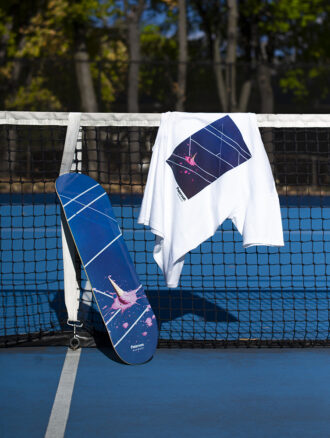By Giri Nathan
Dominic Thiem, who is not the smoothest talker even in the best of times, has found himself in a pickle. In late April, the world No. 3 voiced his discomfort with contributing to a relief fund for lower-ranked players. “No tennis player is fighting to survive, even those who are much lower-ranked. None of them are going to starve,” he told the Austrian newspaper Krone, while criticizing the “professional manner” of some players. On its face, this is a bad look for someone who had already earned $1.7 million before the tour shut down, and has cleared nearly $24 million in career earnings. He didn’t help his cause by bungling an exchange with the young Algerian tennis player Ines Ibbou, currently ranked 620 in the WTA this year, who criticized Thiem’s comments from the perspective of a struggling player.
But I do understand what Thiem is saying. He is not alone among players who feel squeamish that the burden of supporting out-of-work tennis players has fallen on…other out-of-work tennis players. This is an internationally popular sport that generates a lot of revenue for a lot of different stakeholders—and even that isn’t always honestly reported. There’s money flowing through it. There must be some carrying capacity, some number of players that the present appetite for tennis can sustain financially. How could that number be so close to the cutoff to qualify for a Slam? How is it that one of the best 200 players in the world could be on the verge of giving up tennis after a few months off the job?
Thiem might not go this far, but: That means the system was already broken, well before the tours shuttered. This is not a surprising outcome in a decentralized sport played by independent contractors who mostly need to stretch well beyond their prize money to afford the expenses of touring. Sure, Wimbledon can count on a prescient pandemic insurance policy. Individual players, meanwhile, lost their source of income instantly; it would have been nice if some organization had been squirreling away some reserves for them. (Meanwhile, ATP execs continue to collect their salaries as usual, and haven’t communicated much, which chafes at least one top player.) While it’s better than nothing, a relief fund is a single-use Band-Aid. In the long run, players stand to gain more from organizing and demanding more from tournaments and governing bodies than from redistributing wealth once. A struggling player propped up for 2020 will return to a still-broken industry in 2021.
But back to Dominic. It was bound to come off horribly—and yes, the tour (and world) would be healthier if all that money wasn’t concentrated in a handful of players’ bank accounts—but he does make a simple point about being intentional with giving. If you’re looking to maximize the impact of giving, it is not clear that an aspiring professional tennis player ranks above a person in need of malaria nets—or an under-equipped healthcare provider, to stay more on the COVID-19 theme. Many people, pandemic or not, could have their lives changed more meaningfully by Dominic Thiem’s money. You have to take him at his word that he actually is spreading the wealth in his chosen way, but it’s easy to see why “someone who is effectively saving money by not traveling to pursue a tennis career” would land pretty far down the list of ethical priorities.
I would prefer to live in a world where no person struggles to get by, regardless of whether the person in question has ambitions to play professional tennis. Honestly, regardless of whether they have any real aptitude for any endeavor at all, really. This could be tough to square with an inherently adversarial, unequal, meritocratic structure of a professional tennis tour. But it wouldn’t matter, so long as that structure was built on top of an acceptable foundation for all. Then again: This is a tennis newsletter, written from the hardest-hit city in a flailing country that refuses to imagine better things are possible, so allow me set the goalposts a little more realistically. Most people who work do not have the public platform, or the irreplaceability, to demand a greater share of the fruits of their labor. Top tennis players—the ones who sell the tickets, put the butts in seats—are in the lucky position to do exactly that, and potentially benefit those down the ladder. They certainly have the time to do so right now, too. But it will take a little bravery to get there, and a little more inconvenience than writing a check.
Buy Now
Patterson + Racquet Skateboard Deck
This limited-edition board from our collaboration with New Jersey’s finest skate, tennis, and athletic apparel company, Paterson League, is here just in time for your springtime needs. We’ve made only a handful of these, and all deck purchases will come with a matching tee in the size of your choosing.



